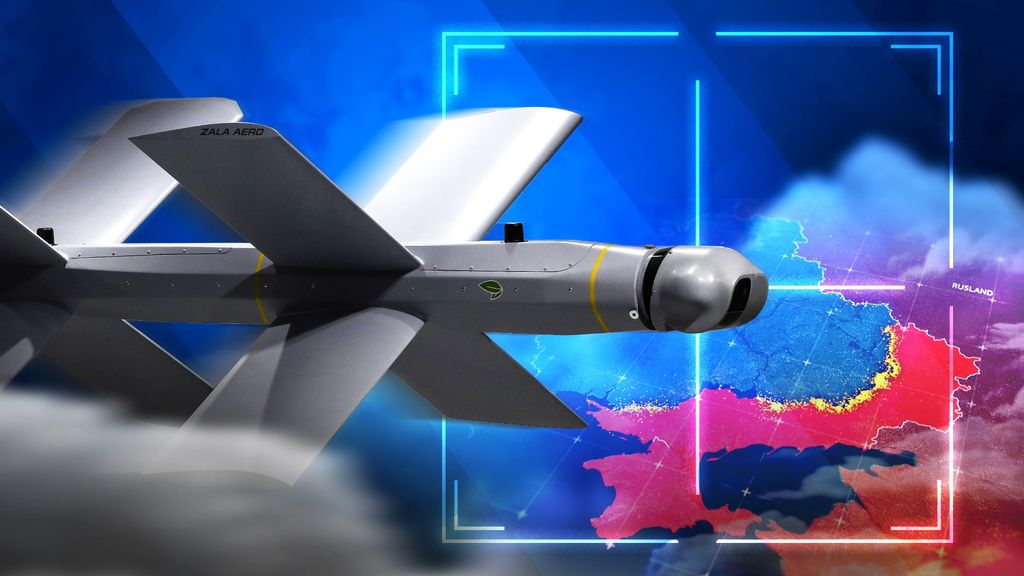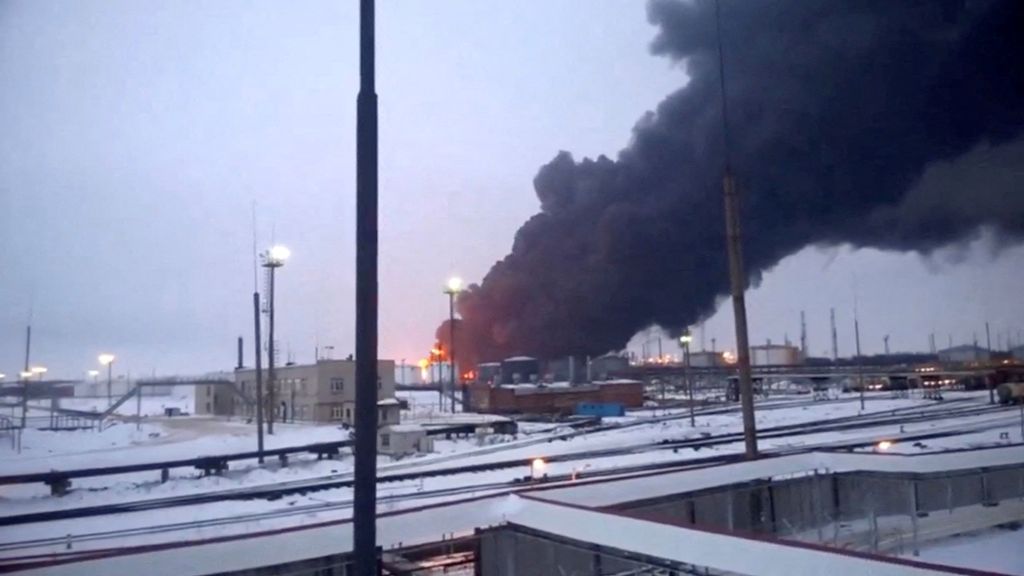Noos News•
Although shifts on the front have been limited for months, it is clear that Ukraine is increasingly launching attacks on Russian territory – sometimes deep into Russia, several hundred kilometers across the border. It is carried out with drones, which are often sent to hit oil refineries and storage depots. What does Ukraine want to achieve with this and how can drones influence the battle?
Just yesterday, on the day of Russia’s (fake) elections, the Defense Ministry in Moscow reported shooting down 17 Ukrainian drones over the southern Krasnodar region, four of them around Moscow and the others in other areas. A fire broke out at a refinery in Slavyansk-on-Kuban, in the southern Krasnodar region.
But drone attacks have recently been reported on refineries deeper in Russia, for example in Ryazan and near Nizhny Novgorod. Ryazan is located about 200 kilometers southeast of Moscow, and Nizhny Novgorod is located inland. The figures also confirm that Ukraine is increasingly using drones. There were 11 recorded drone attacks on Russian territory in 2022, last year this number was 106 and in the first months of this year already 33.
Mart de Kruif, former commander of the ground forces, says these attacks are part of Ukraine’s “deep operation.” “The attacks there are aimed at closing the battlefield to the enemy. Logistical and supply lines have been hit.”
De Kruif estimates that the effects on the Russian oil sector are limited. “But Ukraine’s goal is not just to hit supplies. Drone attacks are forcing Russia to move its air defenses. As a result, Russia is having to make choices, and they don’t like that.”
Energy expert Lucia van Geuns from The Hague Center for Strategic Studies (HCCS) points out that the Russian oil industry is enormous. “A drone attack is painful, but for the entire industry it is just a pin prick.”
“Deeper, more often, harder”
According to her, these are just small pinpricks that can have a regional impact. “The damage to the refineries means inconvenience, but I understand – they can fix it very quickly. But a burned-out warehouse near the Ukrainian border means you can’t use those oil products in war.”
According to Van Guynes, the recently issued gasoline export ban is not without significance. “The refineries are intended for domestic and foreign use. The export ban should ensure domestic use: just as in the United States, the higher the price of gasoline, the more dissatisfied people become. The Kremlin benefits from a stable price, without shortages.”
Defense expert George Demetriou (Clingendael) believes that Ukraine is looking for ways to strike Russia. “Things have stopped on the front line, so they are looking for other ways. You can create chaos in the Kremlin with drone attacks, but there is not enough evidence of that yet. That is why those attacks have to be carried out.” “Be deeper, more frequent and harder.”
“It’s a distraction”
President Zelensky announced in December that Ukraine would produce more than one million drones this year. The country says it has more than 200 companies working on this project. Although Russia is not standing still either, Minister Kamyshin, who is in charge of the military industry, believes that Ukraine has an advantage. According to him, mass and numbers are not decisive. “Our strength lies in our strong employees, our engineers, who come up with the right solutions and know how to implement them.”
Marina Miron, a defense expert at King’s College London, doubts the effectiveness of drone strikes in Russia. “As an attempt to thwart Russian war financing, I don’t expect much from it. It’s a drop in the ocean. At most, it’s useful in terms of PR: images of attacks show Western allies: We’re still fighting. But it distracts from what’s happening on the battlefield.”
She thinks it doesn’t look good there. “Ukraine faces a significant shortage of manpower and equipment. Russia’s drone strikes look great on screen, but they do not solve this shortage.”
‘The Netherlands is far behind’
De Kruif agrees that drone attacks are not a “game changer.” “The most decisive factor is the extent to which Ukraine retains Western support. It is increasingly dependent on Europe. We are too late in the Netherlands. We have been talking about building munitions factories for two years.”
At the same time, he sees positive developments in Brussels and other European capitals. “The industry is starting to take off. The support is not optimal, but you could also say the cup is half full.”
In Meron’s opinion, Europe is mainly struggling. “They understand that they morally have to help, but they cannot increase supplies fast enough. In addition, what is being done in Europe should be compared to Russia, where the war industry has proven its resilience.”
Watch this video from Nieuwsuur to learn more about the drone war between Ukraine and Russia:

How are drones changing the war in Ukraine?

“Infuriatingly humble social media buff. Twitter advocate. Writer. Internet nerd.”








